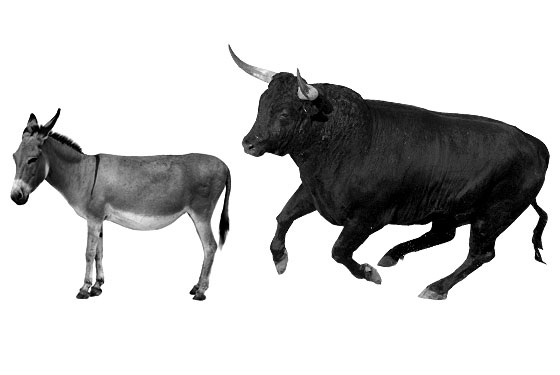
Obama was elected with substantial support from Wall Street. Then he turned on them. After the national election, popular feeling, it seemed, had recoiled from the excesses of wealth, much as it had all the way back in 1933, when, as Franklin D. Roosevelt put it in his first inaugural address, “the unscrupulous money changers [stood] indicted in the court of public opinion.”
Obama’s inaugural was more tactful (blaming problems on the “greed and irresponsibility on the part of some”), but after a solid year or more of hammering the financial elites, the Democrats are confronted with the fact that antagonism to Wall Street has turned out not to divide neatly along party lines, and that appeals to Main Street virtues cut both ways. Today Democrats are faced with the perception that they are … the party of Wall Street. In a poll in July, close to half of Americans thought the Obama administration orchestrated the bank bailout; only a third knew TARP was passed under Bush.
And so it goes nationally. In Pennsylvania’s Senate race, Joe Sestak has made little headway with his Wall Street criticism; in the Ohio governor’s race, even the Republicans’ nomination of a onetime managing director at Lehman Brothers, of all places,hasn’t helped the Dems.
The trope of the “Wall Street elite” is easily conflated with the conservative motif of the “liberal elite”—those non-regular Ivy types who care more about pelicans than good jobs on oil rigs. And to the public, “Wall Street” means not so much “banks” as “rich people in New York and Washington.” Having run and won with the support of Wall Street—he was famously friendly with JPMorgan chief Jamie Dimon—Obama and the rest of the party have ever more strenuously tried to disengage. This hasn’t exactly gone smoothly.
That Republicans have been able to turn the criticism of Wall Street around on the Democrats is an ancient strategy: William McKinley clobbered the banker-hating William Jennings Bryan in 1896 by painting his Democrats as the party of deficits and inflation. (Actually, the situation in 1896 was quite similar to what the Democrats might face in 2012. The Democrats—Grover Cleveland—took office in 1893, inheriting a financial catastrophe for which he was ultimately blamed.)
The current economic malaise would cause trouble for whichever party is in power. But having helped open the valves of anti-Establishment fervor, the Democrats may have not only failed to harness the energy they unleashed, but lost what capitalist allies they had as well. If there is still such a thing as an Establishment, the Obama administration increasingly faces the prospect of alienating it while still getting pilloried for being it. That’s a political perfecta no one was looking to pull off.
Have good intel? Send tips to intel@nymag.com.